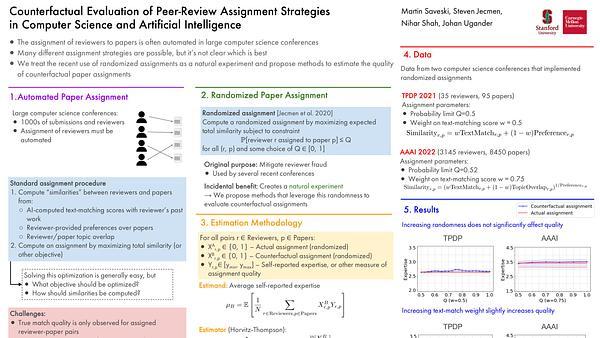Would you like to see your presentation here, made available to a global audience of researchers?
Add your own presentation or have us affordably record your next conference.
keywords:
funding/sponsorship
quality of reporting
dissemination of information
Objective The National Institutes of Health (NIH) is the
largest source of government funding for biomedical research
in the world, although only a small proportion of its funding
is dedicated to pediatric research. Timely dissemination of
results for NIH-funded pediatric clinical trials is imperative
to uphold the integrity of scientific evidence, maintain ethical
obligations to trial participants, and ensure evidence-based
clinical care. Since 2017, the NIH has required NIH-funded
clinical trials to be registered and summary results submitted
to ClinicalTrials.gov, generally not later than 1 year after
primary trial completion.1 In this study, the dissemination of
NIH-funded pediatric clinical trial findings was investigated
through results submitted to ClinicalTrials.gov and in
publications in peer-reviewed medical journals.
Design A cross-sectional analysis of NIH grants funding
pediatric clinical trials with funding completed from January
1, 2017, to December 31, 2019, was conducted. Grants funding
pediatric trials in NIH RePORTER and the status of
registration and results submission in ClinicalTrials.gov were
determined. Publications were identified in PubMed as of
February 28, 2022. Time to results reporting in ClinicalTrials.
gov at 12 months and 24 months since primary trial
completion, and factors associated with nonpublication from
an a priori set of variables using multivariable logistic
regression were determined.
Results Among 3408 pediatric grants completed during the
study period, 421 (12.4%) supported an interventional study
(Table 15). Mental and behavioral health conditions (70
trials 16.6%), obesity (56 13.3%), and substance use (40
9.5%) were the most commonly studied conditions. Greater
than three-quarters of the trials studied behavioral
interventions (321 76.2%). There were 360 trials (85.5%)
registered in ClincialTrials.gov, of which 229 (63.6%) were
registered prospectively (ie, within 21 days of study start).
Results were submitted for 16.6% of trials (95% CI, 14.4%-
18.8%) by 12 months and 22.8% (95% CI, 20.2%-25.5%) by
24 months. Publications were available for 11.8% of trials
(95% CI, 10.2%-13.5%) at 12 months and 27.7% (95% CI,
25.3%-30.1%) at 24 months. Overall, 56,833 participants
were enrolled in trials that remained unpublished after a
median follow-up of 33 months since trial completion. Trials
were more likely to remain unpublished if the trial end point
was a surrogate measure (adjusted odds ratio, 2.09; 95% CI,
1.26-3.45) compared with a clinical event.
Conclusions Despite policies promoting dissemination of
NIH-funded clinical trial results, less than a third of pediatric
trials reported results in ClinicalTrials.gov or published
findings in peer-reviewed journals 2 years after completion.
To maximize the impact of pediatric clinical trials, additional
efforts are needed to improve reporting practices and advance
translation of research findings into evidence-based clinical
care. Such efforts may include the withholding of additional
funding unless trials have been prospectively registered and
results publicly reported in a timely manner.

Reference
1. NIH policy on the dissemination of NIH-funded clinical
trial information. National Institutes of Health. Updated July
24, 2017. Accessed March 5, 2022. https://grants.nih.gov/policy/clinical-trials/reporting/understanding/nih-policy.htm
Conflict of Interest Disclosures No authors have potential
conflicts of interest, including specific financial interests and
relationships and affiliations relevant to the subject of this abstract.


